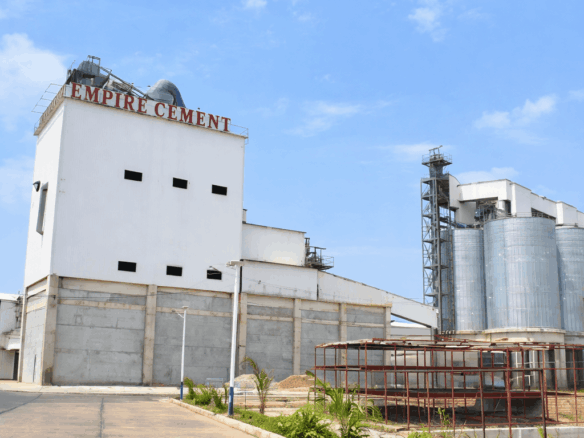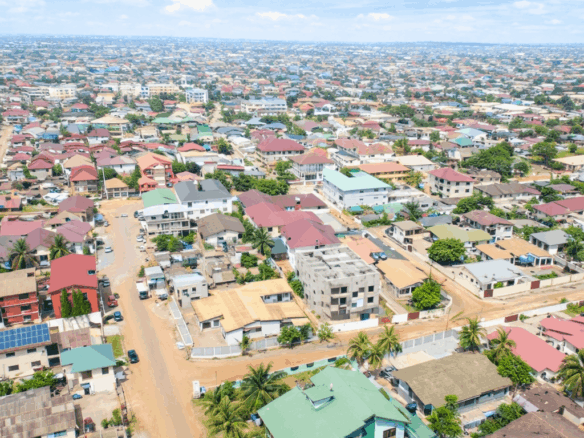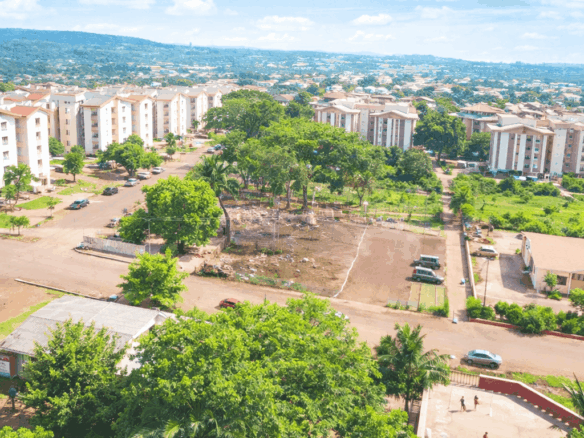Why Legal Knowledge Is Your Most Valuable Asset
Investing in Ghana’s vibrant real estate market presents tremendous opportunities, but navigating the country’s complex legal framework can be daunting. Whether you’re a first-time buyer, a returning Ghanaian from the diaspora, or a foreign investor, understanding the legal landscape is essential for a secure property purchase. With Ghana’s housing deficit estimated at over 1.8 million units and a rapidly growing urban population, the property market remains competitive and sometimes challenging to navigate legally.
This guide unpacks Ghana’s real estate legal framework to help you avoid costly mistakes and protect your investment.
Understanding Ghana’s Real Estate Legal Structure
Ghana’s property laws stem from multiple sources that work together to regulate land ownership and property transactions:
Key Legislation
- The 1992 Constitution establishes fundamental property rights and recognises Ghana’s customary land tenure systems
- Land Act 2020 (Act 1036): Consolidates and harmonises land laws to improve land administration
- Land Use and Spatial Planning Act 2016 (Act 925): Governs zoning, land use planning, and development permits
- Land Title Registration Act 1986 (PNDCL 152): Provides for registration of title to land
- Real Estate Agency Act 2020 (Act 1047): Regulates real estate agency practice and protects consumers
- Local Governance Act 2016 (Act 936): Empowers local authorities in planning and development control
This legislative framework aims to address historical challenges in Ghana’s land sector while providing security for property investments.
Land Ownership Types in Ghana and Their Implications
Ghana has four main categories of land ownership, each with distinct legal implications for buyers:
1. Stool/Skin/Traditional Land (Customary Ownership)
Approximately 80% of Ghana’s land falls under customary ownership, held in trust by traditional authorities for their communities.
Buyer Implications:
- Transactions require the consent and signature of the appropriate traditional authority
- Customary practices may vary between regions
- Documentation may not always align with statutory requirements
- Higher risk of disputes if proper protocols aren’t followed
2. State/Public Land
Lands acquired and held by the government for public purposes.
Buyer Implications:
- Typically offers clearer titles but requires verification of the government acquisition process
- Must confirm the government entity has the authority to sell or lease
- It may come with specific development conditions or restrictions
3. Family Land
Owned collectively by families and managed by family heads.
Buyer Implications:
- Requires consent from principal family members (not just the family head)
- Higher risk of future disputes with family members if proper procedures aren’t followed
- Need for thorough documentation of family consent
4. Private/Individual Land
Lands owned by individuals or corporate entities with clear titles.
Buyer Implications:
- Generally offers the cleanest ownership structure
- Still requires thorough title verification
- Importance of confirming the seller’s legitimate ownership
Freehold vs. Leasehold: What Buyers Should Know
Ghana’s 1992 Constitution limits foreign ownership to leasehold interests only, with important distinctions between tenure types:
Freehold Ownership
- Available only to Ghanaian citizens
- Grants absolute ownership without time limitations
- Becoming increasingly rare as policy shifts toward leasehold systems
- Cannot be newly granted on stool/skin lands per constitutional provisions
Leasehold Ownership
- Available to both citizens and non-citizens
- Term limits: Up to 99 years for Ghanaians, 50 years for foreigners
- Comes with specific covenants and conditions
- May require consent for certain property modifications
- Renewable, subject to conditions and negotiations
Critical Documentation: Your Legal Protection
Before finalising any property purchase, ensure you obtain and verify these essential documents:
1. Land Title Documentation
- Land Title Certificate: Official proof of ownership from the Lands Commission
- Search Report: Verifies the status of the property at the Lands Commission
- Site Plan: Shows exact boundaries, endorsed by the Survey and Mapping Division
- Indenture/Deed of Conveyance: Details the transfer of ownership rights
2. Development and Compliance Documentation
- Building Permit: Confirms the structure meets planning requirements
- Development Permit: Authorises specific land use
- Property Rate Receipt: Shows payment of local property taxes
- Utility Installation Permits: Confirms legal connection to services
3. Transaction Documentation
- Tax Clearance Certificate: Confirms the seller has paid relevant taxes
- Receipt of Purchase: Proof of payment
- Transfer forms: Official documents for transferring the title
The Due Diligence Process: Your First Line of Defence
Thorough due diligence is non-negotiable when purchasing property in Ghana:
1. Title Verification at the Lands Commission
- Conduct searches at relevant divisions of the Lands Commission
- Verify property boundaries match documentation
- Check for encumbrances, mortgages, or caveats
- Confirm planning permission and zoning compliance
2. Local Inquiries
- Verify property rates and tax payments with local authorities
- Consult with neighbours about boundary disputes or claims
- Check with utility companies about service availability and outstanding bills
3. Professional Assessment
- Engage licensed surveyors to confirm boundaries
- Hire qualified lawyers specialising in property law
- Consider property valuation to ensure fair market pricing
Common Legal Pitfalls and How to Avoid Them
1. Multiple Sales of the Same Property
Risk Mitigation:
- Conduct thorough searches at the Lands Commission
- Register your interest early with a caveat
- Work with reputable agents registered under the Real Estate Agency Act
2. Unclear Title or Ownership Disputes
Risk Mitigation:
- Engage a real estate lawyer to trace ownership history
- Verify consent from all necessary authorities or family members
- Ensure proper documentation of all consents and approvals
3. Building Permit and Zoning Violations
Risk Mitigation:
- Verify zoning classification before purchase
- Check building permits with the local assembly
- Confirm development aligns with approved plans
4. Boundary Disputes
Risk Mitigation:
- Conduct official surveys with the Survey and Mapping Division
- Verify site plan accuracy on the ground
- Consider boundary demarcation with neighbouring properties
How GhanaPropertyFinder Supports Your Legal Journey
At GhanaPropertyFinder.com, we understand the legal complexities of property acquisition in Ghana. Our platform supports buyers by:
- Partnering with verified property listings that have undergone preliminary legal checks
- Connecting buyers with trusted, licensed real estate professionals
- Providing resources on legal requirements for different property types
- Offering insights into regional variations in land tenure systems
Conclusion: Empowering Your Property Investment Journey
Understanding Ghana’s real estate legal framework is essential for successful property acquisition. By conducting thorough due diligence, working with qualified professionals, and leveraging resources like GhanaPropertyFinder.com, you can navigate the legal landscape with confidence.
Remember that investing in legal expertise early in your property journey is not an expense—it’s protection for what may be one of the largest investments of your lifetime.
Frequently Asked Questions
-
Can foreigners own property in Ghana?
Foreigners can own buildings but are restricted to leasehold interests in land for a maximum of 50 years, while Ghanaians can obtain leaseholds of up to 99 years.
-
What’s the difference between registered and unregistered land in Ghana?
Registered land has gone through the formal title registration process, offering greater security, while unregistered land relies primarily on documentation like indentures without formal state registration.
-
How long does the property registration process take in Ghana?
The process typically takes 3-6 months, but can extend longer depending on the complexities. Recent digitisation efforts at the Lands Commission aim to reduce this timeline.
-
Is it necessary to hire a lawyer when buying property in Ghana?
Yes, given the complexity of Ghana’s land tenure system and the high risk of disputes, working with a qualified real estate lawyer is highly recommended.
-
What recourse do I have if I discover legal issues after purchasing property?
Remedies may include legal action against the seller for misrepresentation, claims against professional advisors for negligence, or specific regulatory complaints under the Real Estate Agency Act.
Ready to find legally vetted property listings in Ghana? Visit GhanaPropertyFinder.com today to connect with trusted agents and discover properties that meet your needs with greater peace of mind.






